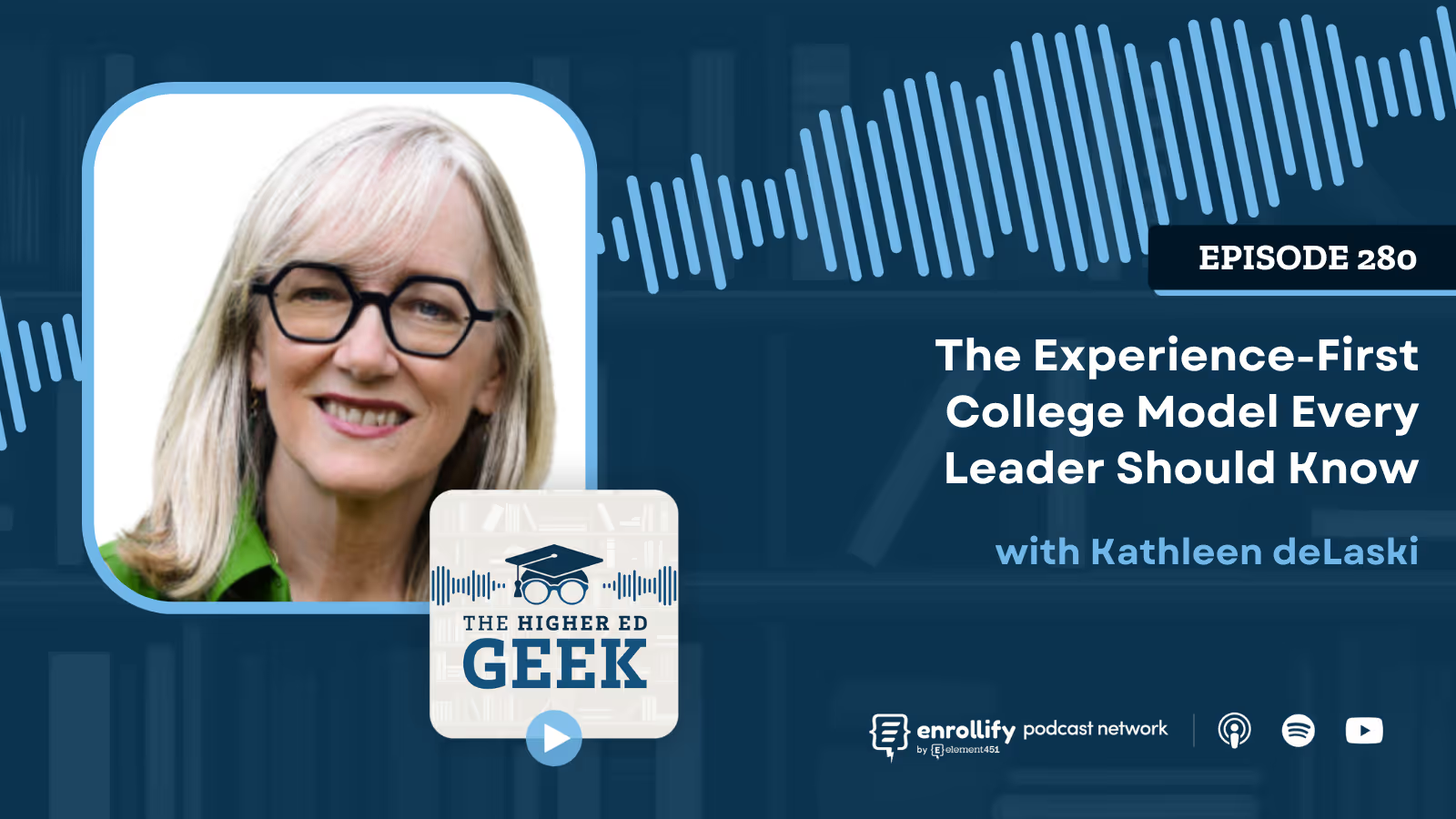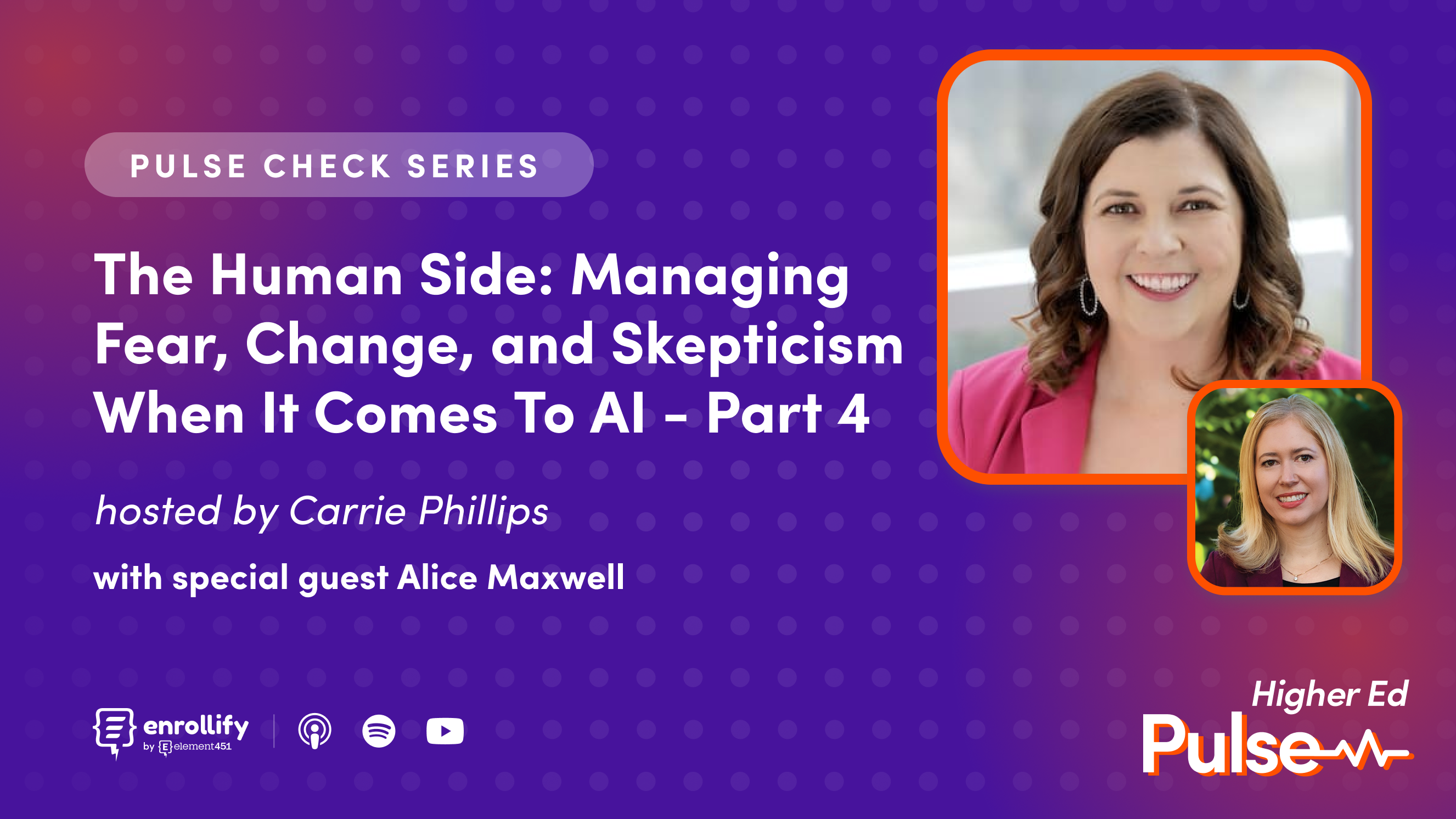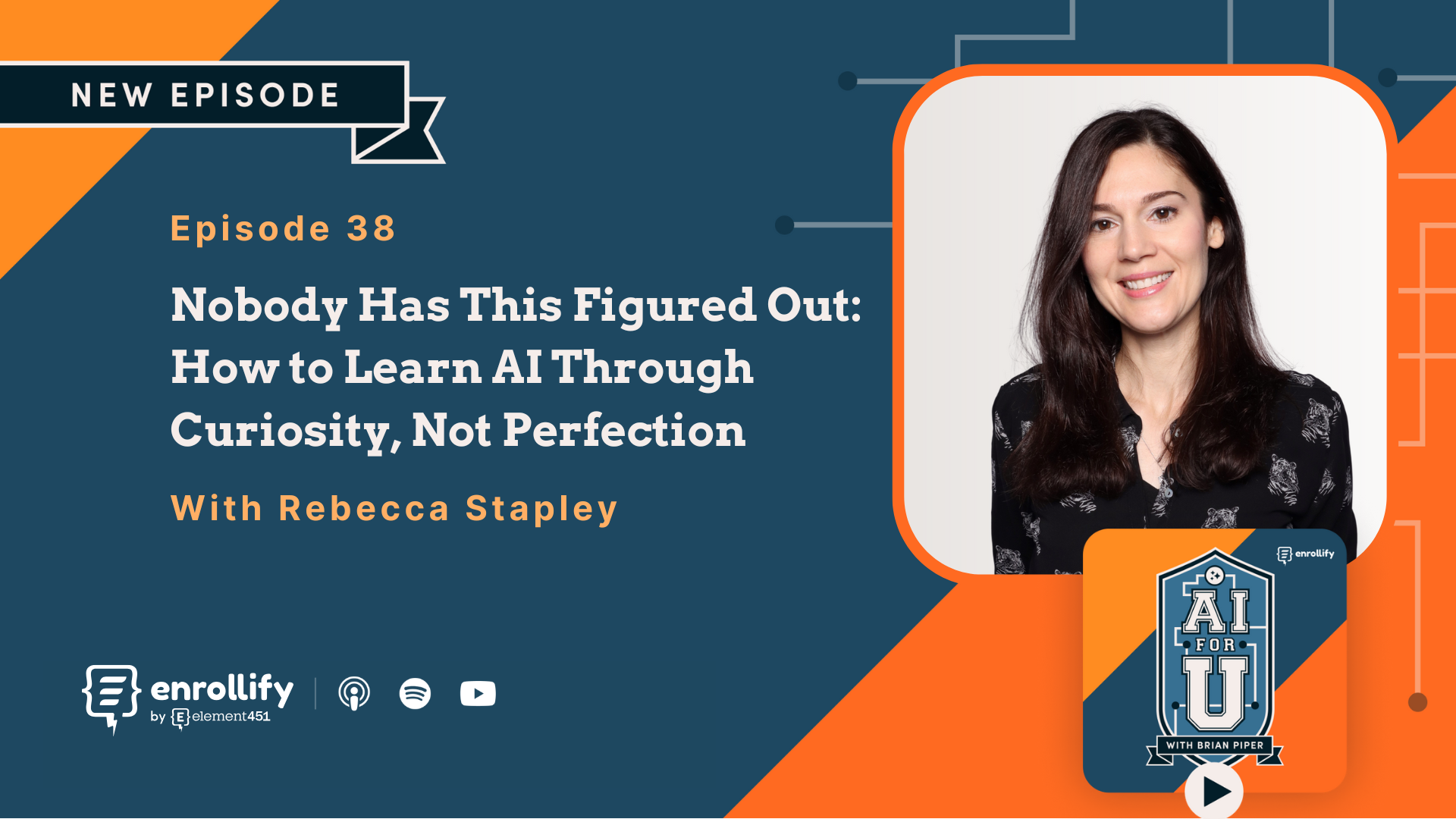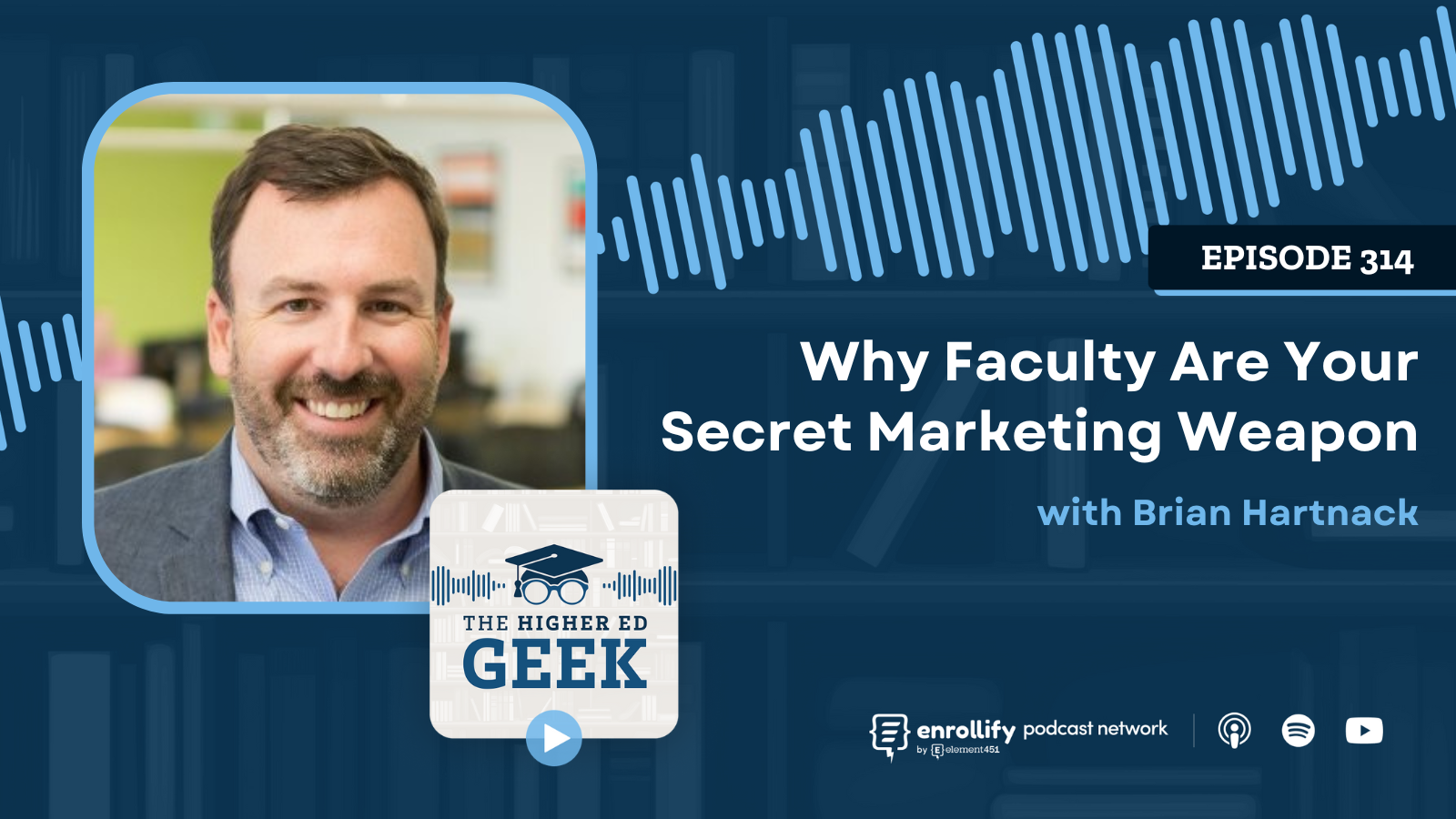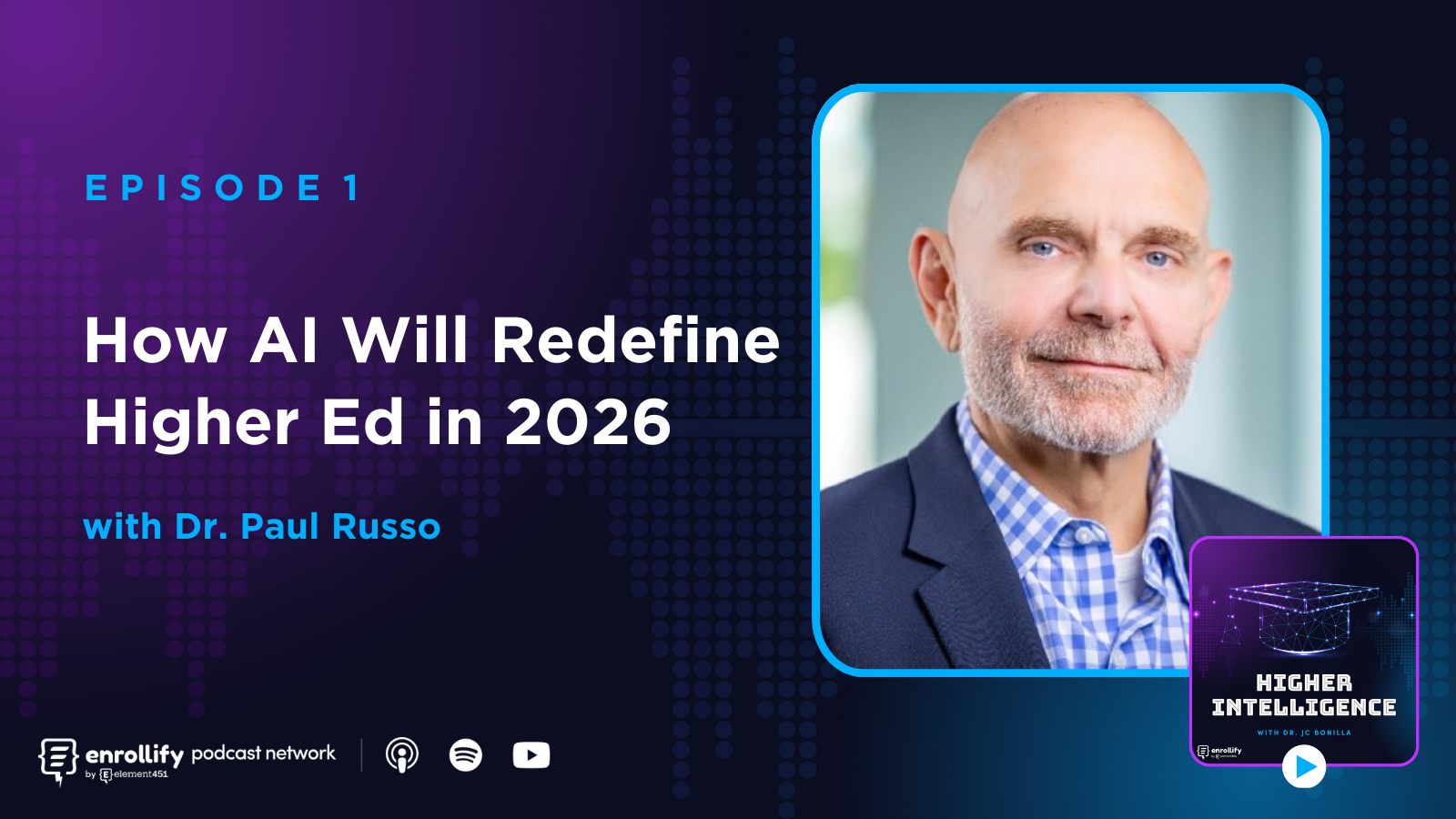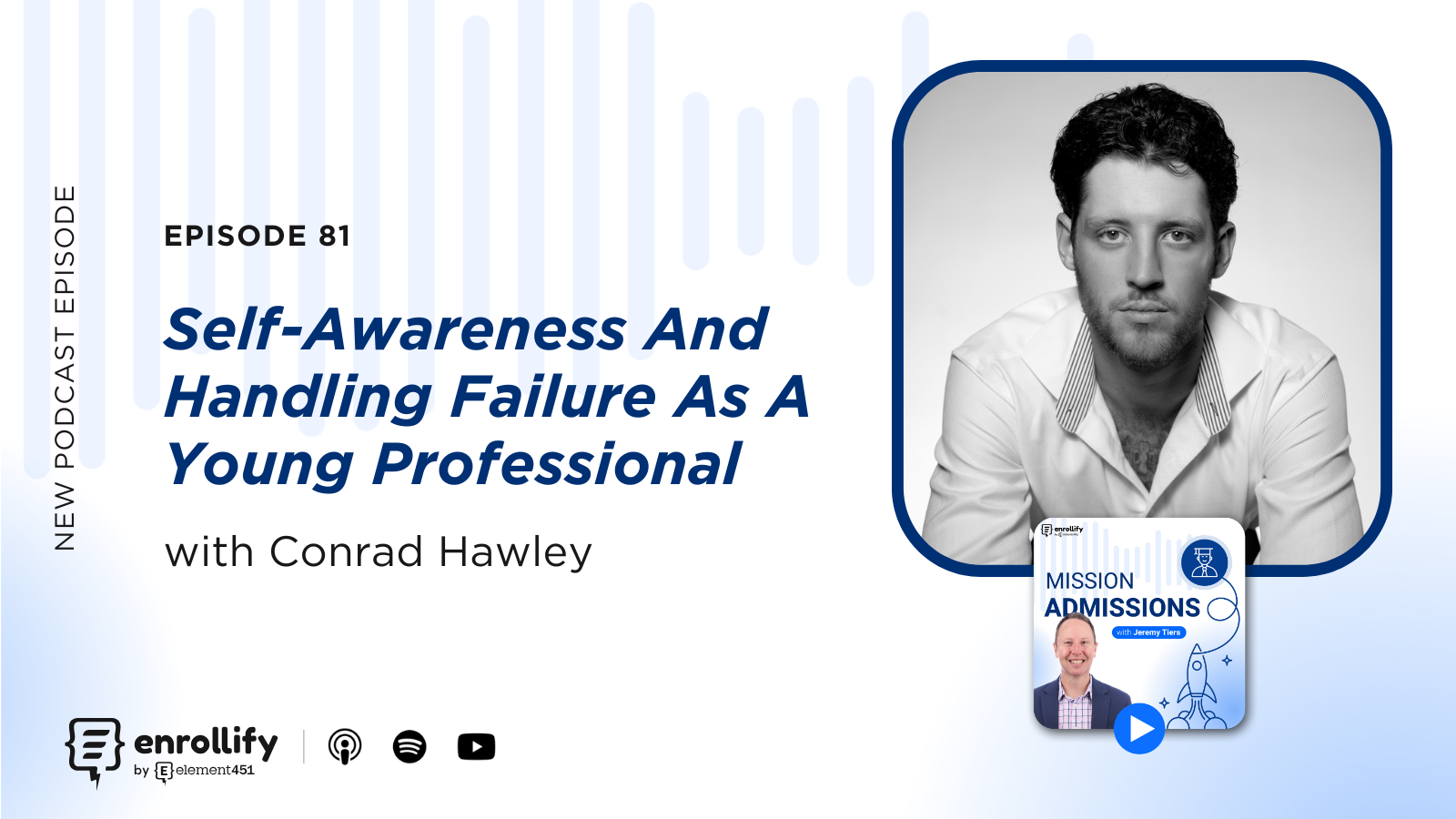About the Episode
Got a story to tell? An innovative idea to share? Fill out our guest nomination form and let's chat!
About the Episode:
In this week’s episode, Dustin sits down with Kathleen deLaski — author of Who Needs College Anymore? — to explore why the traditional four-year degree is no longer the only path to career success. Kathleen shares insights from her research on alternative learning models, highlights innovative colleges embracing change, and lays out a vision for an experience-first approach to higher ed. They tackle everything from AI’s impact on entry-level jobs to the urgent need for affordability and new credentialing systems.
Key Takeaways
- The four-year degree is no longer the only—or most relevant—path to career readiness.
- Colleges must embrace alternative credentials, bootcamps, and apprenticeships as part of their core offerings.
- Experiential learning should be embedded into curriculum, not left up to students to figure out.
- AI in higher education is reshaping both teaching strategies and the job market for recent grads.
- Affordability and ROI are the top concerns driving learners to seek nontraditional pathways.
- Dual enrollment, virtual internships, and micro-pathways present untapped opportunities for growth.
- Right-sizing doesn't always mean downsizing—it can also mean expanding access through more flexible models.
Who really needs college anymore?
That’s the bold—and nuanced—question Kathleen deLaski poses in her new book, Who Needs College Anymore? This episode dives into the meaning behind the provocative title, which isn't meant to dismiss the value of higher education, but to reframe it. Kathleen shares her personal experience as both a college grad and a parent of one child who pursued a degree and one who didn’t. Her argument? The traditional degree shouldn’t be the only path to economic mobility or fulfillment—especially when just 38% of Americans finish a four-year degree.
In today’s landscape, rigid models don’t reflect student or market needs. As enrollment pressures mount and ROI becomes the priority for learners, institutions need to diversify their offerings beyond the one-size-fits-all degree. Kathleen advocates for a more nimble ecosystem—one that recognizes and funds certificates, bootcamps, apprenticeships, and skills-based hiring equally alongside traditional academic tracks.
What is an “Experience-First College,” and why should we care?
Kathleen introduces a forward-thinking concept she calls the Experience-First College. In this model, the end goal isn't just graduation—it’s employment. She argues that students should be led to the front door of their first job through embedded work experiences like practicums, internships, and employer-designed micro-pathways.
She points to programs like Northeastern University’s century-old co-op model and emerging tech platforms like Riipen that allow schools to offer real-world experience even in rural or resource-limited environments. But implementing these models widely isn’t just a matter of vision—it requires structural change. Faculty buy-in, curriculum integration, and leadership support are all critical factors. Kathleen emphasizes that career readiness can’t be “extra credit.” It has to be core.
How can higher ed right-size for the future?
Right-sizing isn’t just about cutting costs or closing campuses—it’s about recalibrating your institution to meet the needs of modern learners. That could mean reducing physical footprints and reinvesting in digital infrastructure, or shifting resources toward non-degree credentials that serve working adults. Kathleen urges higher ed leaders to look outward—not just to federal policies and research dollars, but to their full ecosystem: local employers, community colleges, high schools, and adult learners.
The fastest-growing segments in higher ed today? Non-degree programs and dual enrollment. By developing stackable credentials, micro-pathways, and employer partnerships, institutions can broaden their market while meeting students where they are. That requires a mindset shift—moving from traditional degree-centric models to a continuum of learning options that align more directly with workforce needs.
What role does AI play in reimagining student success?
AI in higher education isn’t a futuristic concept—it’s already impacting how we teach, learn, and hire. Kathleen highlights that the entry-level, white-collar jobs traditionally pursued by college grads may be the most disrupted by AI automation. The big question becomes: What are we preparing students for? And how?
Colleges must rethink both the what and the how of teaching. That includes integrating AI literacy into the curriculum and credentialing students' ability to work with these tools—whether through formal certifications or new experiential learning methods. Kathleen encourages experimentation and open dialogue, noting that we’re still in the early stages of figuring this out. The institutions that move first on AI readiness will set the standard for relevance and employability in the coming decade.
About the Show: The Higher Ed Geek Podcast explores the impact of edtech on the student experience by speaking with diverse leaders from institutions, companies, and nonprofit organizations. Each week we aim to provide an engaging, fun, and relevant dose of professional development that honors the wide range of work happening all across the higher ed ecosystem. Come geek out with us! The Higher Ed Geek Podcast is hosted by Dustin Ramsdell and is a proud member of the Enrollify Podcast Network.
Connect With Our Host:
Dustin Ramsdell
About The Enrollify Podcast Network:
The Higher Ed Geek is a part of the Enrollify Podcast Network. If you like this podcast, chances are you’ll like other Enrollify shows too!
Some of our favorites include Generation AI.
Enrollify is produced by Element451 — the next-generation AI student engagement platform helping institutions create meaningful and personalized interactions with students. Learn more at element451.com.
Attend the 2025 Engage Summit!
The Engage Summit is the premier conference for forward-thinking leaders and practitioners dedicated to exploring the transformative power of AI in education.
Explore the strategies and tools to step into the next generation of student engagement, supercharged by AI. You'll leave ready to deliver the most personalized digital engagement experience every step of the way.
👉🏻 Register now to secure your spot in Charlotte, NC, on June 24-25, 2025!







